Arthur Sze, Sight Lines
SIGHT LINES, Arthur Sze. Copper Canyon Press, PO Box 271, Port Townsend, WA 98368, 2019, 70 pages, $16 paper, www.coppercanyonpress.org.
Today I started a couple different poetry books and for some reason—I don’t blame the poets—couldn’t get any traction. 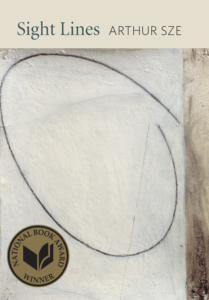 Then I stumbled across this one, sat down, and read it all the way through. Arthur Sze has long been one of my favorite poets, and Sight Lines is a book I already knew well. I’ve studied the poems and shared them with my writing group. But reading the whole book, all in one go, was a very different experience. (I recommend both approaches.)
Then I stumbled across this one, sat down, and read it all the way through. Arthur Sze has long been one of my favorite poets, and Sight Lines is a book I already knew well. I’ve studied the poems and shared them with my writing group. But reading the whole book, all in one go, was a very different experience. (I recommend both approaches.)
Sight Lines is Sze’s 10th book of poetry and it won the National Book Award. The Copper Canyon editors call it “prismatic,” and “stunning.” They’re not wrong. I love the way Sze both eulogizes our crippled planet and celebrates its images. The nest of a spotted towhee, Norway maples, cedar trees, deer, lichen, wild irises. Nothing escapes notice: “a fern rises out // of the crotch of an ‘õhi’a tree and droplets have collected / on a mule’s foot fern” (“In the Bronx”). Everywhere nature’s fragility is both itself and a reminder—singing to us—of our own fragility: “…only look yes look at me now because you are blink / about to leave” (“Lichen Song”).
Here’s a poem from a dog-eared page:
Xeriscape
When she hands you a whale vertabra,
you marvel at its heft, at a blackpebble lodged in a lateral nook;
the hollyhocks out the windowstretch into sunshine; a dictionary
in the room is open to xeriscape;the sidewalk and gravel heat all day
and release warmth into the night;the woman who sits and writes
sees pressed aspen board, framerssetting window headers and door-
jambs—here no polar bears rummageat the city dump, no seal-oil lamps
flicker in the tide of darkness—you know the influx of afternoon
clouds, thunder, ball lightning,wavering lines of rain that evaporate
before they strike the ground,as you carefully set the whale bone
on the glass table next to the television.—Arthur Sze
To read more about Arthur Sze and Sight Lines, visit his page at Copper Canyon. At Poetry Foundation I learned that he has a new book, The Glass Constellation: New and Selected Poems (Copper Canyon Press, 2021) which I will need to get my hands on.


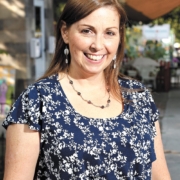
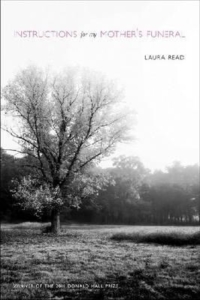 Then life goes on. A life in three parts. Swoon-worthy writing here, and poems I wish I’d written.
Then life goes on. A life in three parts. Swoon-worthy writing here, and poems I wish I’d written.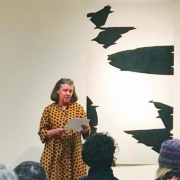
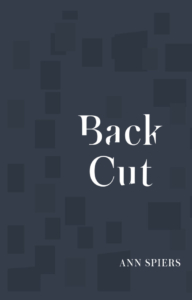 The cover is black, but has darker blocks set into the background. The title, in white letters, is partly cut away.
The cover is black, but has darker blocks set into the background. The title, in white letters, is partly cut away.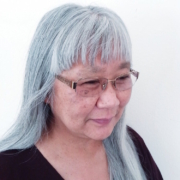
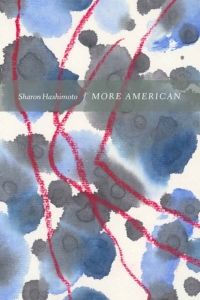 collect and treasure family voices, stories of internment and military service, education, and a grandmother peeling onions, or rising from her bath. Every subject is given such poise and dignity, even when buttocks and breasts are “plump bags,” “socks stretched.” It is a book of family, and a book of witness to that family’s particular (and particularly) American history.
collect and treasure family voices, stories of internment and military service, education, and a grandmother peeling onions, or rising from her bath. Every subject is given such poise and dignity, even when buttocks and breasts are “plump bags,” “socks stretched.” It is a book of family, and a book of witness to that family’s particular (and particularly) American history.